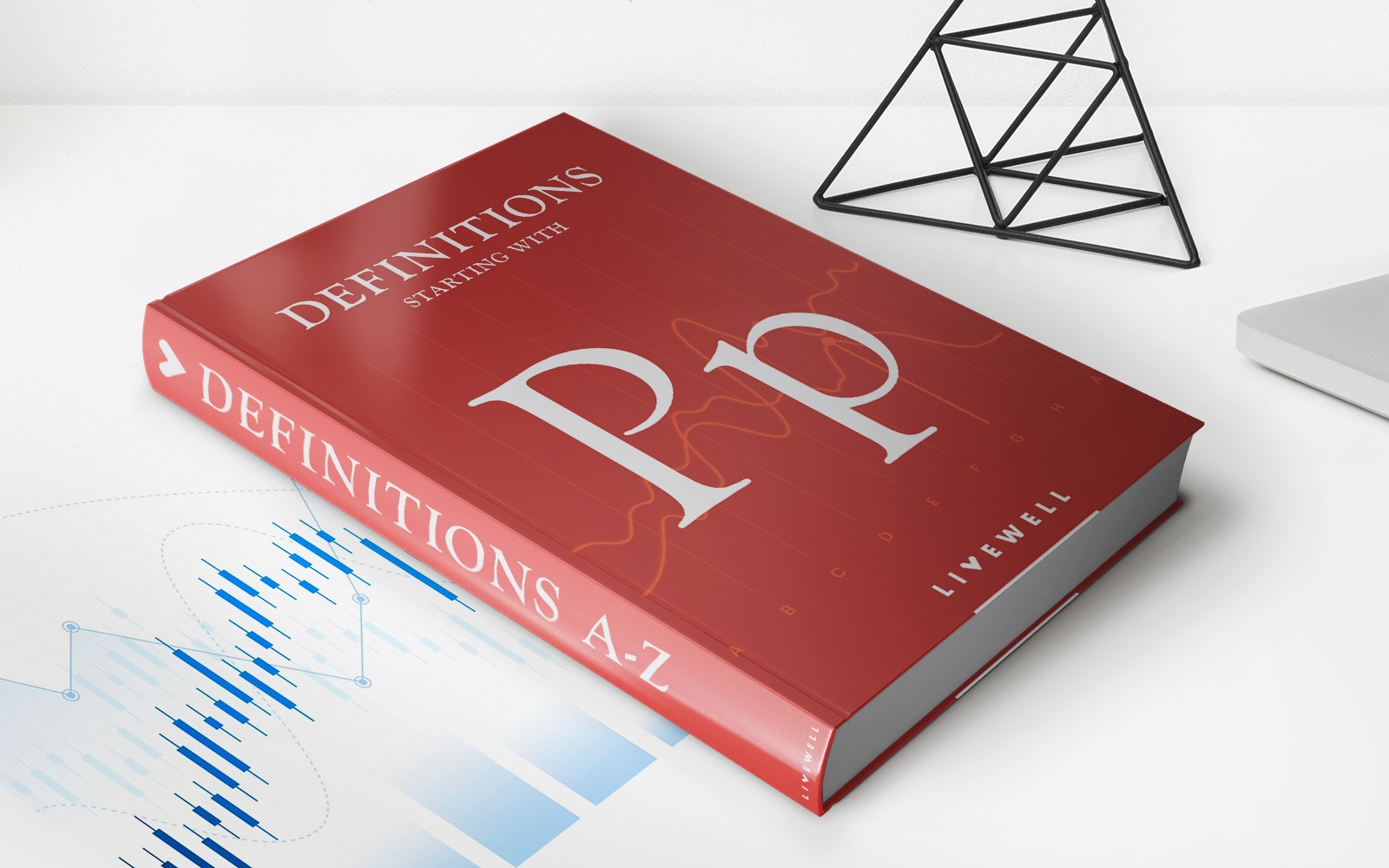Home>Finance>How Much Does It Cost To Start A Car Insurance Company


Finance
How Much Does It Cost To Start A Car Insurance Company
Published: November 22, 2023
Learn the cost to start a car insurance company and explore the necessary finances you'll need. Find out how much it takes to launch your own insurance business.
(Many of the links in this article redirect to a specific reviewed product. Your purchase of these products through affiliate links helps to generate commission for LiveWell, at no extra cost. Learn more)
Table of Contents
Introduction
Starting a car insurance company can be a lucrative venture for those with a passion for the finance industry and a desire to provide essential services to consumers. The car insurance industry is a thriving sector, offering individuals and businesses the vital protection they need in case of accidents or unforeseen circumstances. However, establishing a car insurance company requires careful planning, extensive research, and a solid financial foundation.
In this article, we will delve into the various factors to consider when starting a car insurance company, including the legal requirements, capital investment, office setup, staffing and training, technology and software, marketing and advertising, insurance policies and pricing, operational costs, regulatory compliance, and risk management.
By understanding these key elements, aspiring entrepreneurs can gain valuable insights into the steps involved in launching a successful car insurance company. Whether you’re an experienced finance professional looking to expand your horizons or someone with a keen interest in the insurance industry, this article will provide you with a roadmap to navigate the complexities of starting a car insurance company.
Now, let’s dive into the research and planning stage to lay the groundwork for your future endeavor.
Research and Planning Stage
The research and planning stage is crucial when starting a car insurance company. This is the foundation upon which your business will be built, so it’s essential to dedicate ample time and effort to gather the necessary information and develop a comprehensive plan. Here are some key aspects to consider:
Market Analysis: Conduct a thorough market analysis to understand the current landscape of the car insurance industry. Identify potential competitors, assess their strengths and weaknesses, and determine opportunities for differentiation. Examine market trends, consumer demographics, and purchasing behaviors to tailor your offerings to meet customer needs.
Target Audience: Define your target audience and understand their insurance requirements. Consider whether you will cater to specific demographics or focus on serving a broader market. Knowing your target customers will help you develop tailored insurance policies and marketing strategies.
Insurance Regulations: Research and familiarize yourself with the insurance regulations and licensing requirements in your jurisdiction. Ensure that you comply with all legal obligations and obtain the necessary licenses and permits before launching your business. This may include obtaining a certificate of authority, meeting solvency requirements, and adhering to specific industry standards.
Financial Projections: Develop realistic financial projections to determine the financial viability of your car insurance company. Evaluate start-up costs, ongoing expenses, and revenue streams. Consider factors like underwriting, claims processing, administrative costs, and customer acquisition expenses to estimate your profitability in the initial years of operation.
Partnerships and Collaborations: Explore potential partnerships and collaborations with insurance agents, brokers, or reinsurers to strengthen your market position and enhance your underwriting capabilities. Building strategic alliances can provide access to a wider customer base and offer expertise in areas where you may have limited experience.
Risk Assessment: Assess the potential risks and challenges associated with operating a car insurance company. Consider factors such as claims frequency, severity, and exposure to natural disasters or catastrophic events. Develop risk management strategies to mitigate these risks and ensure the long-term sustainability of your business.
By thoroughly researching and planning during the initial stages, you can minimize uncertainties and make informed decisions to set your car insurance company on the path to success. The next step is understanding the legal requirements and licensing process, which we will explore in the following section.
Legal Requirements and Licensing
Before you can start operating your car insurance company, it is important to understand and comply with the legal requirements and licensing procedures. The specific requirements may vary depending on your jurisdiction, but here are some general steps to consider:
Research Insurance Laws: Familiarize yourself with the insurance laws and regulations in your jurisdiction. Understand the requirements for starting an insurance company, including the necessary licenses, capitalization requirements, and solvency regulations. It is crucial to stay updated on any changes or updates to these laws that may impact your business.
Form a Legal Entity: Determine the type of legal entity you want to establish for your car insurance company, such as a corporation or a limited liability company (LLC). Consult with a legal professional to understand the pros and cons of each structure and choose the one that best suits your business goals and risk management strategies.
Obtain Licenses and Permits: Apply for the required licenses and permits to operate as an insurance company in your jurisdiction. This typically involves submitting an application, paying fees, and providing detailed information about your company’s structure, officers, and financial standing. Some jurisdictions may also require you to appoint a licensed insurance professional as part of your management team.
Meet Capitalization Requirements: Insurance companies are often required to meet specific capitalization requirements to ensure their financial stability. This may involve demonstrating a minimum amount of capital or obtaining a surety bond. Consult with a financial advisor or insurance regulator to determine the exact capitalization requirements for your specific jurisdiction.
Secure Reinsurance: Reinsurance plays a crucial role in the insurance industry by providing coverage to insurance companies for catastrophic or large-scale losses. Depending on the jurisdiction, you may be required to secure reinsurance arrangements to operate as a car insurance company. Research reputable reinsurers and negotiate terms and conditions that align with your business objectives.
Comply with Regulatory Reporting: Insurance companies are typically required to submit regular reports to regulatory bodies, including financial statements, premium filings, and claims data. Ensure that you have systems and processes in place to meet these reporting requirements accurately and on time.
Maintain Compliance: Once your car insurance company is up and running, it is essential to stay in compliance with all legal and regulatory requirements. This includes ongoing reporting, adherence to capital adequacy ratios, and compliance with consumer protection laws. Regularly review any regulatory updates or changes to ensure that your operations remain in compliance.
Complying with the legal requirements and obtaining the necessary licenses and permits is crucial for the smooth and legal operation of your car insurance company. By working closely with legal professionals and regulators, you can navigate the complex legal landscape and establish your business on a solid foundation.
Capital and Investment
Capital is a critical component when starting a car insurance company. Sufficient investment is required to cover startup costs, meet regulatory capital requirements, and sustain operations until the company becomes profitable. Here are some factors to consider regarding capital and investment:
Startup Costs: Determine the initial expenses involved in launching your car insurance company. These may include licensing fees, legal costs, office setup, technology infrastructure, marketing and advertising expenses, staff salaries, and initial underwriting expenses. Conduct a thorough analysis to estimate these costs and create a detailed budget.
Capitalization Requirements: Research the capitalization requirements set by insurance regulators in your jurisdiction. These requirements ensure that insurance companies have sufficient funds to cover potential claims and maintain financial stability. Understand the minimum capitalization amount that you must meet to obtain the necessary licenses and satisfy regulatory requirements.
Equity Financing: Consider raising capital through equity financing. This involves selling shares of your company to investors in exchange for funds. Seek potential investors who are interested in the insurance industry and can provide not only financial support but also industry expertise and guidance.
Borrowing: Explore loan options from banks, financial institutions, or private lenders to secure additional capital. Prepare a strong business plan and financial projections to support your loan application. Carefully evaluate the terms and conditions of the loan, including interest rates and repayment schedules, to ensure they align with your business strategy.
Reinsurance Arrangements: Enter into reinsurance agreements to transfer a portion of the insurance risk to reinsurers. This can help reduce the capital needed to cover potential claims. Seek reinsurance partners who align with your business objectives and have a strong track record in the industry.
Financial Management: Implement sound financial management practices to optimize the use of available capital. This includes monitoring expenses, controlling costs, and ensuring effective underwriting and claims management protocols. Regularly analyze financial statements and key performance indicators to identify areas for improvement and efficiency.
Profitability Timeline: Understand that profitability may take time to achieve in the insurance industry. Develop a realistic timeline for achieving profitability and ensure that you have adequate capital to sustain operations during this initial phase. It is crucial to have a robust financial plan and contingency measures in place to manage any unexpected challenges or delays in revenue generation.
Financial Advisors: Consider working with experienced financial advisors who specialize in the insurance industry. They can provide valuable insights, guide you through financial decisions, and help ensure that your capital is utilized effectively.
Securing sufficient capital and making wise investment decisions are vital for the success of your car insurance company. By carefully planning and managing your finances, you can build a strong financial foundation and position your company for long-term growth and profitability.
Setting Up Office Space
When starting a car insurance company, establishing a suitable office space is essential for creating a productive and professional work environment. Here are some key considerations when setting up your office:
Location: Choose a location that aligns with your target market and business needs. Consider factors such as accessibility, proximity to transportation hubs, availability of parking, and the presence of other businesses that can provide potential partnerships and networking opportunities.
Office Size: Assess the space requirements based on the size of your team and the expected growth of your company. Consider factors such as workstations, meeting rooms, storage areas, and common spaces. Allow for future expansion to accommodate additional staff as your car insurance company grows.
Layout and Design: Design an office layout that fosters collaboration, productivity, and a positive work environment. Consider open-concept workspaces, private offices for managers, comfortable meeting rooms, and breakout areas. Incorporate ergonomic furniture and adequate lighting to promote employee well-being.
Technology Infrastructure: Ensure that your office space is equipped with the necessary technology infrastructure. This includes high-speed internet connectivity, secure network systems, robust cybersecurity measures, and reliable communication tools. Invest in modern hardware and software solutions to support efficient operations.
Security Measures: Implement robust security measures to protect sensitive data and information. Install security systems, including access control measures, surveillance cameras, and alarms. Establish protocols for data protection, secure document storage, and secure handling of customer information to comply with industry regulations.
Office Equipment and Supplies: Procure essential office equipment and supplies to support day-to-day operations. This may include computers, printers, scanners, telephones, office furniture, stationery, and office supplies. Consider both the immediate needs and potential future requirements of your car insurance company.
Collaborative Spaces: Create collaborative spaces where employees can interact and brainstorm ideas. This can include dedicated meeting rooms, breakout areas, and communal spaces for informal discussions. Encourage a culture of teamwork and collaboration within your office environment.
Branding and Ambience: Reflect your brand identity and mission in the design and décor of your office space. Incorporate your company logo and branding elements into the office layout, signage, and interior design. Create a welcoming and professional ambience that aligns with your brand values.
Accessibility and Compliance: Ensure that your office space is compliant with accessibility regulations to accommodate employees and visitors with disabilities. Install ramps, elevators, accessible parking spaces, and wide doorways to facilitate easy access. Comply with local building codes and regulations regarding safety, fire prevention, and emergency exits.
Setting up an office space that caters to the needs of your employees and supports efficient operations is crucial for the success of your car insurance company. By creating a professional and functional environment, you can foster a positive work culture and provide a welcoming experience for clients and employees alike.
Staffing and Training
Building a competent and knowledgeable team is essential for the success of your car insurance company. From skilled underwriters to dedicated customer service representatives, each member of your staff plays a crucial role in delivering quality services. Here are some key considerations when it comes to staffing and training:
Identify Key Roles: Determine the key roles and positions required to operate your car insurance company effectively. This may include underwriters, claims adjusters, customer service representatives, marketing specialists, IT professionals, and administrative staff. Clearly define the responsibilities, qualifications, and experience needed for each role.
Recruitment and Hiring: Develop a robust recruitment process to attract talented individuals who align with your company’s vision and values. Advertise job openings on relevant platforms, conduct thorough interviews, and assess candidates’ skills and qualifications. Consider partnering with recruitment agencies or using online job portals to widen your pool of potential candidates.
Training and Development: Invest in comprehensive training programs to equip your employees with the necessary knowledge and skills for their roles. Develop training modules that cover insurance industry fundamentals, underwriting practices, customer service techniques, claims handling protocols, and compliance procedures. Provide ongoing professional development opportunities to enhance their expertise and keep them up-to-date with industry trends.
Culture and Team Building: Foster a positive work culture and promote team building within your car insurance company. Encourage open communication, collaboration, and mutual support among employees. Organize team-building activities, social events, and regular meetings to strengthen relationships and boost morale.
Performance Evaluation: Implement a performance evaluation system to assess and reward the performance of your staff. Conduct regular performance reviews to provide feedback, set goals, and identify areas for improvement. Recognize and reward exceptional performance to motivate employees and promote a culture of excellence.
Continual Learning: Encourage a culture of continual learning within your organization. Encourage employees to stay updated with industry changes and advancements through seminars, webinars, conferences, and industry publications. Provide opportunities for professional certifications and memberships in relevant industry associations.
Succession Planning: Develop a succession plan to ensure continuity in key roles within your car insurance company. Identify individuals who have the potential to take on leadership positions in the future and provide them with appropriate training and development opportunities.
Employee Retention Strategies: Implement strategies to retain top talent within your car insurance company. This can include competitive compensation packages, employee benefits, growth opportunities, a positive work-life balance, and a supportive work environment. Regularly seek feedback from your employees and address their concerns to demonstrate that their contributions are valued.
By investing in staffing and training, you can build a competent and motivated team that will contribute to the growth and success of your car insurance company. Prioritize attracting the right talent, providing comprehensive training, fostering a positive work culture, and recognizing employee achievements to create a thriving organization.
Technology and Software
Technology plays a crucial role in the modern car insurance industry, enabling efficient operations, streamlined processes, and improved customer experiences. When starting your car insurance company, it is important to invest in the right technology and software solutions. Here are some key considerations:
Policy Management System: Implement a robust policy management system that enables efficient policy creation, modification, and renewal processes. This system should automate workflows, generate policy documents, and manage policy-related data securely. Look for a software solution that integrates with underwriting, claims, and billing systems for seamless information exchange.
Claims Processing Software: Streamline claims handling with dedicated claims processing software. This software should facilitate quick and accurate claims intake, allow for efficient claims assessment, automate claims settlement processes, and provide real-time reporting capabilities. Ensure the software has features that support fraud detection and investigation.
Customer Relationship Management (CRM) System: Implement a CRM system to effectively manage customer interactions and relationships. This software should enable you to track customer information, manage communication history, and provide personalized services. Look for features like automated lead management, customer segmentation, and performance analytics to enhance customer satisfaction and retention.
Data Analytics and Business Intelligence: Leverage data analytics and business intelligence tools to gain insights into market trends, customer behavior, and underwriting performance. This will facilitate informed decision-making and help identify opportunities for growth and improvement. Choose software that enables data visualization, predictive modeling, and reporting functionalities.
Underwriting Tools: Utilize underwriting tools and software to assess risk accurately and determine appropriate premiums. Invest in software that leverages advanced algorithms, data integration, and predictive models to support underwriting decisions. This will enhance efficiency, accuracy, and profitability in the underwriting process.
Cybersecurity Solutions: Protect your company’s sensitive data and customer information with robust cybersecurity solutions. Implement firewalls, encryption methods, intrusion detection systems, and regular security audits to safeguard against cyber threats. Stay up-to-date with industry best practices and compliance requirements to ensure data privacy and protection.
Create a Seamless Customer Experience: Implement online self-service portals and mobile applications that allow customers to access policy information, make payments, file claims, and request assistance. Integrate these platforms with your software systems to streamline processes and enhance the overall customer experience.
Training and Support: Provide comprehensive training to your employees on using the technology and software solutions in your car insurance company. Ensure that your software providers offer reliable technical support, regular updates, and training resources to address any issues or questions that may arise.
Investing in the right technology and software solutions is crucial for the efficiency, effectiveness, and competitiveness of your car insurance company. By leveraging the power of technology, you can streamline processes, enhance customer experiences, and position your company for long-term success in the digital age.
Marketing and Advertising
Effective marketing and advertising strategies are essential for establishing your car insurance company’s presence in the competitive marketplace. They help attract potential customers, build brand recognition, and communicate the value of your services. Here are some key considerations when developing your marketing and advertising plans:
Target Audience: Identify and understand your target audience, including their demographics, preferences, and insurance needs. This will enable you to tailor your marketing messages and distribution channels to reach the right audience effectively.
Brand Identity: Clearly define your brand identity and positioning. Develop a unique value proposition that differentiates your car insurance company from competitors. Use this branding consistently across all marketing materials to create brand recognition and loyalty.
Online Presence: Establish a strong online presence through a visually appealing and user-friendly website. Optimize your website for search engines to improve visibility and organic traffic. Utilize content marketing strategies, such as creating informative blog posts, videos, and infographics, to engage with your audience and establish thought leadership.
Social Media Marketing: Leverage social media platforms to connect with your target audience and increase brand awareness. Engage with users by sharing informative content, responding to comments and inquiries, and running targeted advertisements. Consider using platforms such as Facebook, Instagram, Twitter, and LinkedIn to reach potential customers.
Direct Marketing: Utilize direct marketing methods to reach potential customers and generate leads. This can include sending personalized email campaigns, direct mailings, and targeted advertisements on relevant websites or publications. Ensure that your direct marketing efforts comply with applicable regulations, such as obtaining appropriate consent for email marketing campaigns.
Networking and Partnerships: Build strategic partnerships with complementary businesses, such as auto dealerships or vehicle repair shops, to expand your reach and generate referrals. Attend industry conferences, seminars, and trade shows to network with potential clients and build relationships within the insurance industry.
Customer Reviews and Testimonials: Encourage satisfied customers to leave positive reviews and testimonials on your website or reputable review platforms. This social proof can enhance your credibility and attract new customers. Monitor and respond to customer reviews to demonstrate your commitment to excellent customer service.
Community Involvement: Get involved in local community initiatives and sponsor relevant events or organizations. This not only helps you contribute to the community but also raises awareness of your car insurance company and generates positive brand recognition.
Track and Analyze Performance: Implement tracking tools and analytics to measure the effectiveness of your marketing efforts. Monitor key performance indicators (KPIs) such as website traffic, conversion rates, customer acquisition cost, and client retention rates. Use the insights gained to refine your marketing strategies and allocate resources effectively.
Compliance: Ensure that all marketing and advertising campaigns comply with legal and regulatory requirements. Understand the specific rules and restrictions governing advertising in the insurance industry to avoid any violations or misunderstandings.
Developing a comprehensive marketing and advertising plan is crucial for promoting your car insurance company and attracting potential customers. By targeting the right audience, utilizing various channels, and monitoring performance, you can effectively communicate the value of your services and build a solid customer base.
Insurance Policies and Pricing
Developing comprehensive insurance policies with competitive pricing is key to attracting customers and establishing your car insurance company’s reputation. Here are some factors to consider when crafting insurance policies and determining pricing:
Market Analysis: Conduct a thorough analysis of the car insurance market to understand competitors’ offerings and pricing structures. Identify gaps in coverage or underserved customer segments that present opportunities for your insurance policies to differentiate themselves.
Underwriting Guidelines: Develop clear underwriting guidelines that clearly outline the criteria for accepting and pricing risks. Consider factors such as the driver’s age, driving history, type of vehicle, and geographical location. Strive to strike a balance between providing competitive coverage and managing risk effectively.
Policy Coverage Options: Design insurance policies that offer a range of coverage options to meet the diverse needs of your target market. Consider options for liability coverage, collision coverage, comprehensive coverage, uninsured/underinsured motorist coverage, and additional riders such as rental car reimbursement or roadside assistance.
Policy Exclusions and Limitations: Clearly define the exclusions and limitations of your insurance policies to manage risk effectively. Ensure that customers have a clear understanding of what is covered and what is not to avoid any misunderstandings or disputes.
Pricing Strategy: Develop a pricing strategy that considers factors such as actuarial analysis, expected claims frequency and severity, overhead costs, profit margins, and market dynamics. Seek guidance from experienced actuaries or pricing experts to ensure your pricing is both competitive and sustainable.
Discounts and Incentives: Consider offering discounts and incentives to attract customers and encourage loyalty. This can include discounts for safe driving records, multi-car policies, bundling multiple insurance policies, or customer loyalty programs. These incentives can differentiate your car insurance company from competitors and provide added value to customers.
Risk Management: Develop risk management protocols to prevent and mitigate potential losses. This includes implementing effective claims handling processes, conducting thorough investigations, and implementing fraud detection measures. Efficient risk management practices can help reduce costs and maintain competitive pricing.
Customer Communication: Clearly communicate policy coverage, exclusions, and pricing to customers in a transparent and easily understandable manner. Ensure that customers have access to detailed policy documentation and provide avenues for them to ask questions or seek clarification.
Reviews and Adjustments: Regularly analyze the performance of your insurance policies and adjust pricing or coverage as needed. Monitor claims data, customer feedback, and market trends to identify areas for improvement and make necessary revisions to your policies and pricing structures.
Compliance: Ensure that your insurance policies and pricing adhere to relevant legal and regulatory requirements. Stay informed about changes in regulations and adjust your policies accordingly to maintain compliance.
By developing comprehensive insurance policies with competitive pricing, you can attract customers and build trust in your car insurance company. Regularly evaluate and adjust your policies and pricing to meet customer needs, manage risk effectively, and stay ahead in a competitive market.
Operational Costs
Understanding and managing operational costs is crucial for the financial success and sustainability of your car insurance company. As you establish and grow your business, it’s important to consider the various operational costs involved. Here are some key expenses to consider:
Personnel Costs: Personnel costs include employee salaries, benefits, training, and other related expenses. Assemble a skilled team and develop an effective human resources strategy to attract and retain top talent. Factor in the costs of recruitment, training, and ongoing professional development.
Office Space: Lease or rent costs for office space, utilities, maintenance, and insurance should be considered. Evaluate your office needs based on the size of your team, location, and the services you provide. Factor in leasing fees, utilities, internet, phone services, and other associated costs.
Technology and Software: Invest in technology infrastructure, hardware, and software solutions to support your operations. Consider costs associated with purchasing or leasing computer systems, network equipment, software licenses, and ongoing maintenance and upgrades.
Marketing and Advertising: Allocate a budget for marketing and advertising activities to promote your car insurance company. This may include digital marketing campaigns, content creation, social media advertising, print materials, online directories, and sponsorships. Consider both ongoing marketing costs and one-time campaign expenses.
Insurance Premiums: As an insurance company, you will need to carry insurance coverage for your own operations. This includes general liability coverage, professional liability insurance, and cybersecurity insurance. Obtain quotes from reputable insurance providers to estimate these costs accurately.
Claims and Reserves: Set aside funds for anticipated claims and establish reserve funds to cover potential losses. Adequate reserves help ensure financial stability and the ability to pay out claims promptly. Work with actuaries and risk management professionals to assess and determine appropriate reserve levels.
Administrative Expenses: Administrative costs include office supplies, postage, legal fees, accounting services, licensing fees, subscriptions, and other general operating expenses. These costs can vary depending on the size and complexity of your operations.
Compliance and Regulatory Costs: Ensure compliance with regulatory requirements and allocate resources for ongoing compliance costs. This includes licensing fees, reporting fees, legal counsel, compliance training, and any other costs associated with meeting industry and governmental regulations.
Customer Service and Support: Allocate resources for customer service and support functions. This may include call center operations, customer relationship management (CRM) software, hiring additional staff, and training programs to ensure excellent customer service experiences.
Professional Services: Consider external professional services that may be required, such as legal, accounting, auditing, and consulting services. Engage reputable professionals with expertise in the insurance industry to provide guidance and support as needed.
When budgeting for operational costs, it is important to regularly review and analyze expenses. Look for opportunities to optimize operations, streamline processes, and reduce costs without compromising on quality or customer satisfaction. By understanding and managing operational costs effectively, you can help ensure the long-term financial health of your car insurance company.
Regulatory Compliance
Compliance with regulatory requirements is of utmost importance when operating a car insurance company. The insurance industry is heavily regulated to protect consumers and maintain the integrity of the market. Failing to comply with these regulations can result in severe penalties and damage to your company’s reputation. Here are some key considerations for maintaining regulatory compliance:
Insurance Laws and Licensing: Familiarize yourself with the specific insurance laws and licensing requirements in your jurisdiction. Understand the regulations relevant to car insurance companies and ensure that you obtain the necessary licenses and permits to operate legally. This may involve forming a legal entity, meeting capitalization requirements, and appointing qualified individuals within your management team.
Policy Language and Disclosures: Ensure that your insurance policies adhere to the regulatory guidelines regarding policy language and disclosure requirements. Clearly communicate policy terms, coverages, exclusions, and conditions to customers in a transparent and easily understandable manner. Avoid using deceptive or misleading language in your policy documents.
Financial Solvency Requirements: Maintain adequate financial solvency to meet regulatory requirements. This includes maintaining appropriate levels of capital, submitting financial reports, and fulfilling solvency ratios. Failure to meet these requirements may result in fines, suspension, or revocation of your license.
Consumer Protection: Comply with consumer protection regulations to ensure fair and ethical practices. Protect consumer data and privacy and adhere to guidelines related to claims handling, premium collection, policy cancellations, and settlement procedures. Develop and implement processes to address consumer complaints or inquiries promptly.
Anti-Fraud Measures: Implement robust anti-fraud measures to reduce the risk of fraudulent activities within your car insurance company. This includes conducting thorough underwriting and claims investigations, monitoring for suspicious activities, and sharing information with industry databases or law enforcement agencies when necessary.
Marketing and Advertising: Ensure that your marketing and advertising campaigns comply with applicable regulations. Avoid making false or misleading claims and clearly disclose terms and conditions, limitations, and exclusions in your marketing materials. Maintain records of your marketing efforts for compliance audits.
Data Security and Privacy: Protect customer data and adhere to data protection regulations. Implement secure data storage and transmission protocols, encrypt sensitive information, and regularly update your cybersecurity measures. Obtain explicit consent from customers when collecting or using their data and provide transparent information about how their data is handled.
Regulatory Reporting: Submit timely and accurate reports to regulatory authorities as required. This includes financial reports, premium submissions, claims data, and any other requested information. Stay updated on reporting deadlines and requirements to avoid penalties or sanctions.
Ongoing Compliance Monitoring: Regularly review and evaluate your operations to ensure ongoing compliance with regulatory requirements. Establish internal controls, conduct periodic audits, and maintain documentation that demonstrates your commitment to compliance. Stay updated on changes to insurance laws and regulations that may impact your business.
Ensure that all employees and stakeholders within your car insurance company are educated on regulatory compliance requirements. Consider working with legal counsel or external consultants with expertise in insurance regulations to provide guidance and support. By maintaining regulatory compliance, you can protect your company, uphold industry standards, and provide a trustworthy and reliable service to your customers.
Risk Management
Risk management is a crucial aspect of operating a car insurance company. As an insurer, you are exposed to various risks inherent to the industry. Effectively managing these risks is essential for maintaining financial stability and ensuring the long-term success of your business. Here are some key considerations for implementing a robust risk management strategy:
Underwriting Guidelines: Develop comprehensive underwriting guidelines that clearly define your risk appetite and criteria for accepting risks. Consistently apply these guidelines to assess the potential risks associated with policyholders. This will help you avoid risks that could lead to excessive claims or financial losses.
Claims Management: Establish efficient claims management processes to handle and settle claims promptly. Implement robust procedures to verify the legitimacy of claims, conduct thorough investigations, and prevent fraudulent activities. Effective claims management helps you control costs and maintain customer satisfaction.
Reinsurance Arrangements: Mitigate risks by entering into reinsurance agreements with reputable reinsurers. Reinsurance helps spread the risk, especially in the case of catastrophic events or large claims. Work with professional reinsurance brokers to secure appropriate reinsurance coverage that aligns with your risk tolerance and capital capacity.
Investment Strategies: Carefully manage your investment portfolio to generate stable returns while considering the risks associated with different asset classes. Diversify your investments to minimize exposure to any individual risk and ensure liquidity to meet potential claim obligations. Seek guidance from investment professionals to develop an investment strategy aligned with your risk tolerance and financial objectives.
Market Conditions: Monitor market conditions and regulatory changes that may impact your insurance business. Stay informed about industry trends, shifts in consumer preferences, and emerging risks. This will allow you to proactively adjust your underwriting strategies and product offerings to manage potential risks effectively.
Capital Adequacy: Maintain sufficient capital to absorb unexpected losses and meet regulatory requirements. Regularly assess your capital adequacy position and consider stress testing scenarios to evaluate potential impacts on your financial stability. Engage actuaries or financial analysts to ensure your capitalization aligns with your risk exposure and business objectives.
Business Continuity Planning: Develop a comprehensive business continuity plan to ensure the smooth functioning of your car insurance company in the event of unforeseen disruptions. Identify critical processes, define alternative procedures, and establish communication channels to minimize the impact of disruptions such as natural disasters, technology failures, or pandemics.
Reputation and Brand Risks: Safeguard your reputation by ensuring ethical business practices, maintaining transparency, and providing excellent customer service. Monitor and manage potential risks to your brand image, such as negative online reviews or public perception issues. Proactively address customer concerns and take steps to enhance your brand’s trustworthiness and credibility.
Compliance Risk: Manage compliance risks by staying up-to-date with industry regulations and ensuring adherence to legal requirements. Conduct regular compliance audits and establish internal controls to identify and mitigate any compliance risks. Develop a culture of compliance within your organization by training employees on relevant regulations and implementing robust compliance monitoring processes.
By implementing a robust risk management strategy, you can mitigate potential risks and protect the financial viability of your car insurance company. Ensure that risk management practices are integrated into your company’s operations and culture, and regularly review and adjust your risk management processes to align with industry developments and changing risk landscapes.
Conclusion
Starting a car insurance company requires careful planning, thorough research, and a deep understanding of the complex insurance industry. By considering the various aspects discussed in this article, including legal requirements, capital investment, office setup, staffing, technology, marketing, insurance policies, operational costs, regulatory compliance, and risk management, you can set yourself up for success.
Remember to conduct a comprehensive market analysis, define your target audience, and develop competitive insurance policies with appropriate pricing. Ensure that you comply with all legal and regulatory requirements, and focus on building a skilled and motivated team. Leverage technology and software solutions to streamline operations, enhance customer experiences, and support your business growth.
Effective marketing and advertising strategies will help you stand out in a competitive market and attract customers. Keep a close eye on your operational costs, maintain financial stability, and adhere to risk management practices to protect your business from potential risks.
Finally, stay informed about industry trends and changes, continue learning and adapting, and remain proactive in managing your car insurance company. Through diligent research, strategic planning, and continuous improvement, you can establish a successful car insurance company that meets the needs of customers, builds a strong reputation, and achieves long-term profitability.
Starting a car insurance company is undoubtedly a challenging endeavor, but with the right knowledge, expertise, and dedication, you can embark on a rewarding journey in the finance industry, providing essential services to individuals and businesses alike.














